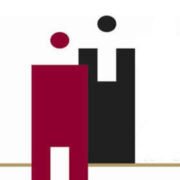Best Debt & Collection Lawyers in Rodez
Share your needs with us, get contacted by law firms.
Free. Takes 2 min.
List of the best lawyers in Rodez, France
About Debt & Collection Law in Rodez, France
Debt and collection law in Rodez, France, is designed to balance the interests of creditors and debtors while ensuring fair and ethical practices in the recovery of debts. This field of law governs how debts are collected and provides mechanisms for both creditors to recover their dues and debtors to dispute or negotiate their liabilities. The legal framework is anchored in both national laws and local regulations, ensuring adequate protection for all parties involved.
Why You May Need a Lawyer
Engaging a lawyer can be crucial in several circumstances related to debt and collection. You might seek legal help if you are being pursued by creditors and need advice on how to manage or contest the debt. Businesses may require assistance in implementing effective debt recovery strategies. Additionally, if you are facing bankruptcy or need help interpreting complex contractual obligations, a lawyer can provide the necessary legal support and representation.
Local Laws Overview
In Rodez, as in the rest of France, the debt and collection process is governed by the French Civil Code and the Code of Civil Procedure. Important aspects to consider include the statute of limitations for different types of debt, consumer protection laws, and the debtor's rights during the collection process. Specific local regulations may also apply, particularly concerning the execution of judgments and the role of the bailiff (huissier de justice) in enforcing debt collection.
Frequently Asked Questions
What should I do if I receive a collection notice?
If you receive a collection notice, you should first verify the legitimacy of the notice and the debt. Check the details against your records and consider contacting the creditor to discuss your options.
Can a creditor seize my assets immediately if I don't pay?
In France, creditors generally must obtain a court judgment before they can seize assets. There are procedures they must follow, which may involve the intervention of a court bailiff.
How long does a creditor have to collect a debt?
The statute of limitations for collecting debts in France is generally five years from the date the debt was acknowledged or the payment was due, but this can vary based on the type of debt.
What are my rights if I am facing debt collection?
You have the right to be treated fairly and not be subject to harassment. You can also contest the debt if you believe it is incorrect or unjustified.
Can I negotiate a repayment plan with my creditors?
Yes, creditors often prefer to negotiate a repayment plan rather than going through lengthy legal processes. A lawyer can assist in these negotiations to ensure fair terms.
What happens if I ignore a debt collection notice?
Ignoring a debt collection notice can lead to legal proceedings, and you could face additional costs, interest, and potential asset seizure with a court judgment.
Who can access my credit report?
In France, credit reports are not as widely used as in some other countries. However, creditors can access your credit history under certain conditions to assess your creditworthiness.
What should I do if a mistake is made in my debt amount?
Contact the creditor or collection agency immediately to dispute the debt. You may need to provide documentation to support your claim.
How can bankruptcy help with debt issues?
Bankruptcy can help restructure or eliminate debts, but it is a serious legal process that requires thorough consideration and advice from a legal professional.
Are there legal limits on the interest rates that can be charged?
Yes, consumer loans are subject to an annual interest rate ceiling, which is regulated to protect borrowers from excessive interest rates.
Additional Resources
For more information or assistance, consider contacting the following organizations:
- The Banque de France: Offers advice on managing debts and credit alerts.
- Association Française des Usagers des Banques: Provides support for banking and credit issues.
- Local Legal Aid Office: Provides legal assistance for those who qualify, including help with understanding debt-related rights and obligations.
Next Steps
If you require legal assistance in debt and collection matters, start by consulting with a lawyer who specializes in this field. They can provide personalized advice and guide you through the legal processes. You may also consider reaching out to local legal aid services or a consumer rights organization for initial guidance. Taking swift and informed action is crucial in managing debt issues effectively.
Lawzana helps you find the best lawyers and law firms in Rodez through a curated and pre-screened list of qualified legal professionals. Our platform offers rankings and detailed profiles of attorneys and law firms, allowing you to compare based on practice areas, including Debt & Collection, experience, and client feedback.
Each profile includes a description of the firm's areas of practice, client reviews, team members and partners, year of establishment, spoken languages, office locations, contact information, social media presence, and any published articles or resources. Most firms on our platform speak English and are experienced in both local and international legal matters.
Get a quote from top-rated law firms in Rodez, France — quickly, securely, and without unnecessary hassle.
Disclaimer:
The information provided on this page is for general informational purposes only and does not constitute legal advice. While we strive to ensure the accuracy and relevance of the content, legal information may change over time, and interpretations of the law can vary. You should always consult with a qualified legal professional for advice specific to your situation.
We disclaim all liability for actions taken or not taken based on the content of this page. If you believe any information is incorrect or outdated, please contact us, and we will review and update it where appropriate.








